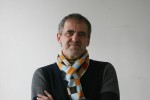Ten People on Finding Out They Have the Alzheimer’s Gene
In 2017, 23andMe began offering tests for the genetic risk of developing certain health conditions like celiac disease, Parkinson’s, and late-onset Alzheimer’s. The Alzheimer’s test will tell you if you have the gene variant APOE4, which means you have an increased likelihood of developing the disease. One in four people carry a single copy of the gene, but 2 to 3 percent of the population have two copies — one from each parent — and have a much higher probability. As with all of 23andMe’s upcharged “Health Predisposition Reports,” the sell on it was self-empowerment: Once you know, you can plan, allowing you to take charge of your well-being.
Except most experts don’t recommend that you test for APOE4 status. There’s no cure for Alzheimer’s disease and no surefire way to prevent it. Many people who find out they have two copies of APOE4 from 23andMe are left only with profound anxiety. Not taking the test in a clinical setting means that when the results come in, there is no doctor or counselor present to help process them or explain what can even be done with the information. Instead, there’s the internet: In Facebook groups and Reddit forums, APOE4/4’s, as they call themselves, try to help one another through their doom spirals. They parse scientific studies on the links between exercise and cognition and theorize about the protective benefits of fish-oil supplements and cooking with saffron.
In 2022, the actor Chris Hemsworth revealed in the National Geographic docuseries Limitless that he has two copies of APOE4, prompting a wave of interest in getting tested. Peter Attia, the longevity doctor who gave Hemsworth the news in the series, devoted a chapter of his 2023 book, Outlive: The Science & Art of Longevity, to the gene variant, proposing a series of lifestyle changes to manage your genetic risk — up your fish consumption, cut out alcohol, lift weights, hit the dry sauna four times a week — some of which are more speculative than solidly proved. Still, his recommendations are a mainstay of online-community discussions.
In May, Nature Medicine published a study that recommended reclassifying APOE4/4 status as not just a risk factor for developing Alzheimer’s but a clear cause — news that sent many 4/4’s spinning. Some plunge themselves into research, looking for methods to stave it off. Others compartmentalize (and philosophize) while trying to be present in their lives. Here, ten 4/4’s stories.
Jane Kramer, 58, Scarsdale
My dad died of Alzheimer’s. He was about 73 when he became forgetful. He ended up living till just about 87, so it was many, many years of decline that I was witness to. When my older sister was 64, my niece came to me saying there’s something going on. I knew what was going on. There’s something called a MoCA test; it’s a classic test they give people to see where they are in their cognition. And the mini mental-state exam, I think it is MMSE. It’s like, “Draw a clock, make it be ten minutes after 11. Draw this shape. Here are three words, remember them. Now I’m going to talk to you and divert your attention for 20 minutes, then come back. What are those three words?” Things like that. I was with my sister when she took this test and she failed miserably. It was probably one of the saddest moments of my life.
When this all happened, that made me go, Uh-oh, I am screwed. These are two first-degree relatives now. When I got the genetic results, I 100 percent freaked out. I became mentally fatalistic, was drinking more. I have always been quite healthy in my life, and I thought, Oh, I’m ruining things.
The kind of person I am, I decided, I’m gonna find every clinical trial there is. I managed to get into the Weill Cornell Alzheimer’s Prevention Clinic and started getting blood work and cognitive testing every six months. I signed up for some clinical trials I knew I would never participate in, just to get tests because you can’t get certain tests otherwise. I got free MRIs. I got free plasma-biomarker tests. I participated in the Women’s Brain Initiative with Dr. Lisa Mosconi, who’s a bigwig. There’s a new drug that’s in an extended phase-three trial, so I’m in touch with the head of that drug company. I have no shame. There was a press release and the guy’s email was on it, so I’m like, “Hey, how’s it going? I’m wondering if you’re doing any prevention trials.”
I did all these studies for years. Then I was going to get an amyloid PET scan and I stopped. I realized I didn’t want to know if I had a positive amyloid PET. I was like, You’re just trying to hurt yourself by knowing too much.
My sister is 70 now and is about to go into hospice. It’s been a fairly fast decline. She doesn’t know who anyone is, speaks babble, and it’s really bad. As I get closer to the age of my sister’s diagnosis, I get more stressed out. As you get older, there is normal forgetfulness sometimes, like when you don’t get enough sleep. So I ask my nieces, “What were the first signs you saw in my sister?” I want to know what made them think it wasn’t just forgetting. It’s a learning experience every day: How do I filter what’s normal from what isn’t normal? I did have an MRI again recently, and I could compare it to my first one, in 2019 — I always ask for the disc and everything so I can compare. My brain is still the normal volume; my hippocampus is still the right size. I remember seeing my sister’s MRI when she was diagnosed, and her brain was like half the size of her head. So that makes me feel better.
If I think about it too much, I get scared. When I see my sister on FaceTime, I get really, really sad. I don’t have kids, but I’ve already given my nieces permission not to come visit me because it’s too upsetting. One question I have is, Do I have enough money to not have to be thrown in a home? I’m married to a nurse practitioner, and she’s a planner. She wants to know how much I wanna be taken care of. Like, “How much intervention do you want?” There’ve been fights about it. I want to be taken care of properly; I don’t want to be left in my own shit or fall down and hurt myself. But could she maybe — and I’m okay with this — not force me to eat if I don’t know what eating is? That comforts me because I know that starving to death is not painful, right? If I lose the hunger mechanism, if I don’t know what food is and it’s sitting in front of me and I don’t know what to do with it, she’s not gonna put it in my mouth. I think her knowledge will create a much more humane situation at end of life for me, if that’s the case. I don’t know if I’m brave enough to go and do an assisted-death thing. I’m chicken about that stuff.
Jake Petersen, 33, Los Angeles
I signed up for 23andMe because I was more interested in questions like “Does cilantro taste bad to me?” I didn’t give the genetic risk much thought. Then I read the Peter Attia book. All of a sudden, I got extremely nervous.
I felt like a train had hit me.
I went into full research mode. Nights, weekends, I had a Google Chrome window with 80 tabs on it, bookmarks out the wazoo. In this time, I’ve learned how to read scientific studies, and I’ll use ChatGPT to digest a lot of them when I can’t understand. As someone in their 30s, I’m not really finding any resources available — I guess it’s in none of these studies’ interest to put someone in the study in their 30s because they’re not going to find out the results for, what, 40 years?
I consider myself extremely lucky and extremely pleased that I found this out. Alzheimer’s is something that’s starting in my brain now. The plaque — these buildups are happening in my 30s, right? I want to change these odds as much as possible. I’m optimistic, but I hear this clock ticking in the back of my head.
I’m not overweight. I do cardio. I do HIIT, I do Barry’s Bootcamp. I’m not a net risk factor. But I think for me, the first step was, Okay, Jake, you need to get a doctor that’s going to not laugh at you when you bring this up and say, “You’re 30, don’t worry about it. You’re healthy, you’re........© Daily Intelligencer





















 Toi Staff
Toi Staff Gideon Levy
Gideon Levy Belen Fernandez
Belen Fernandez Penny S. Tee
Penny S. Tee Dr Ramzy Baroud
Dr Ramzy Baroud Leon Magdalenc
Leon Magdalenc Nazia Kazi
Nazia Kazi Hayim Herring
Hayim Herring
